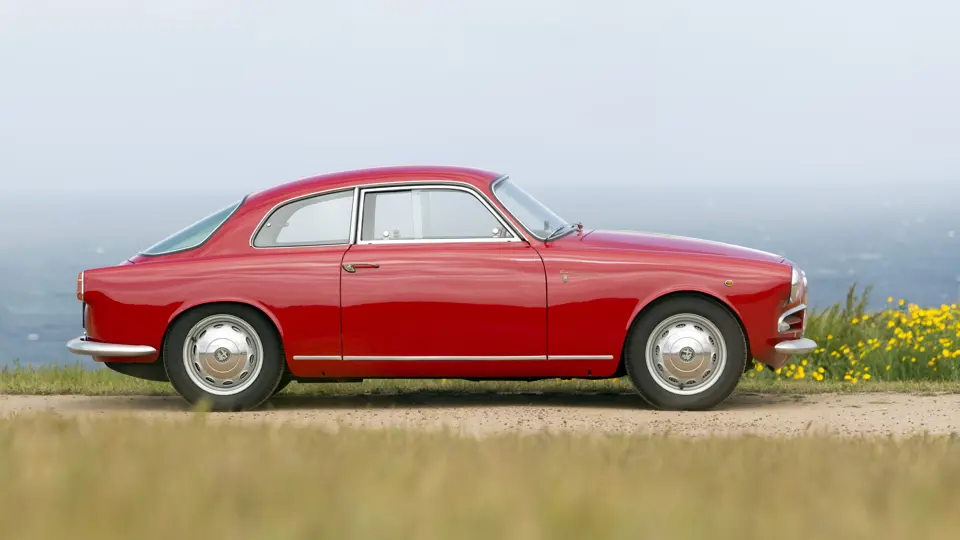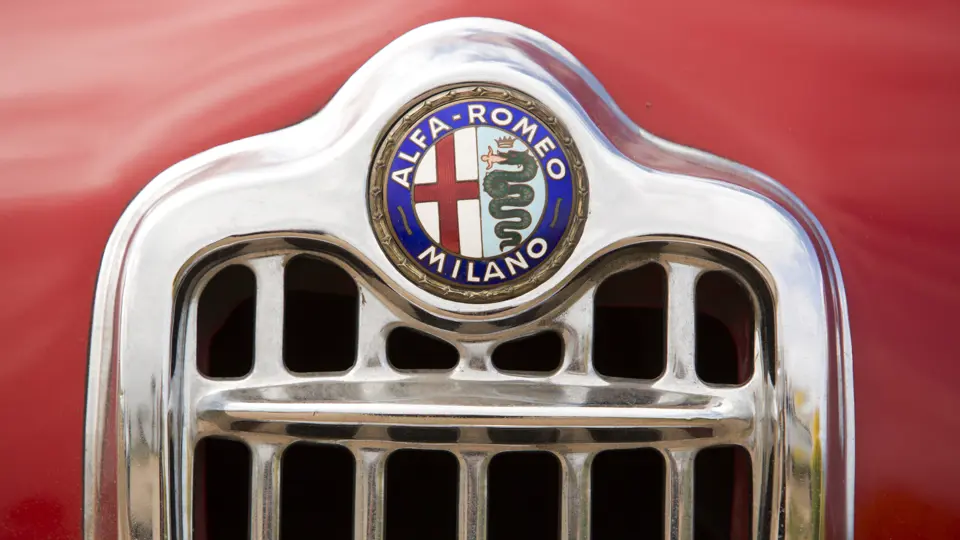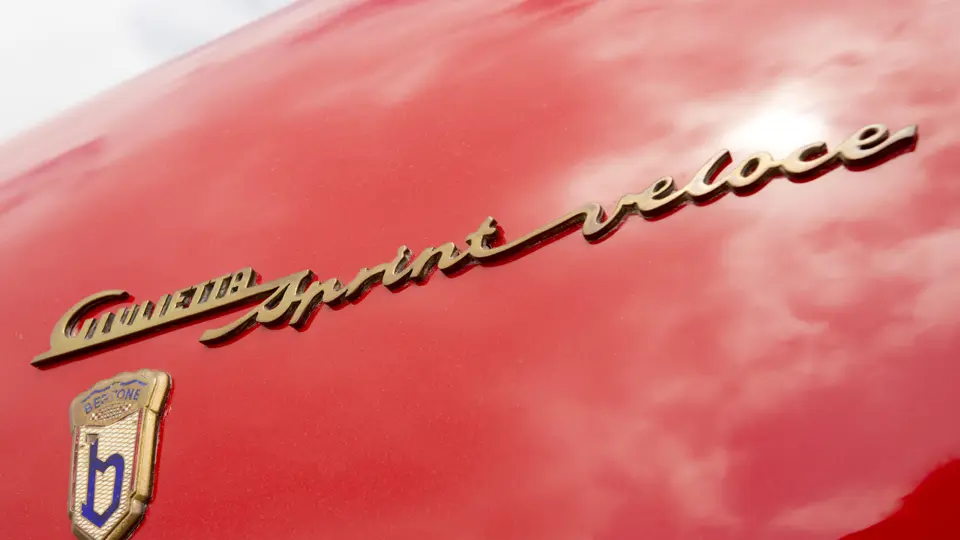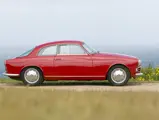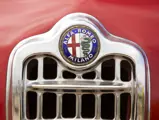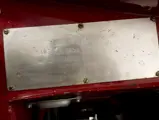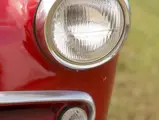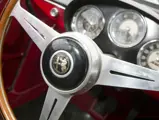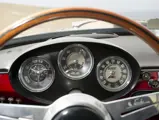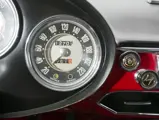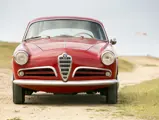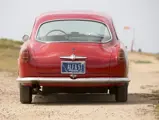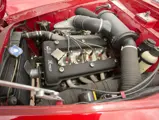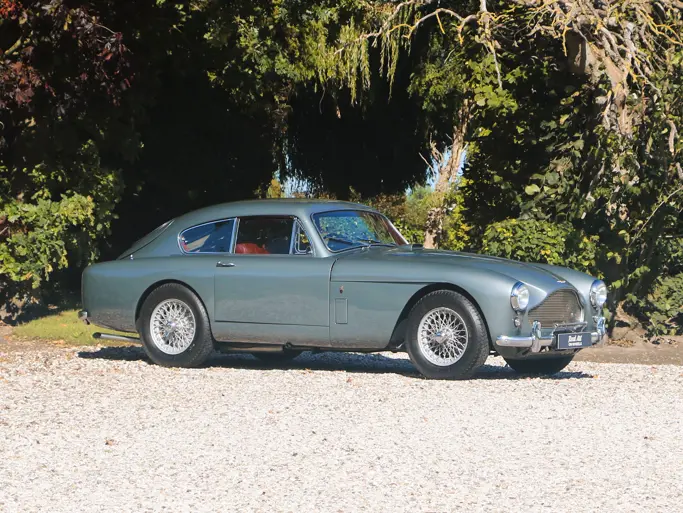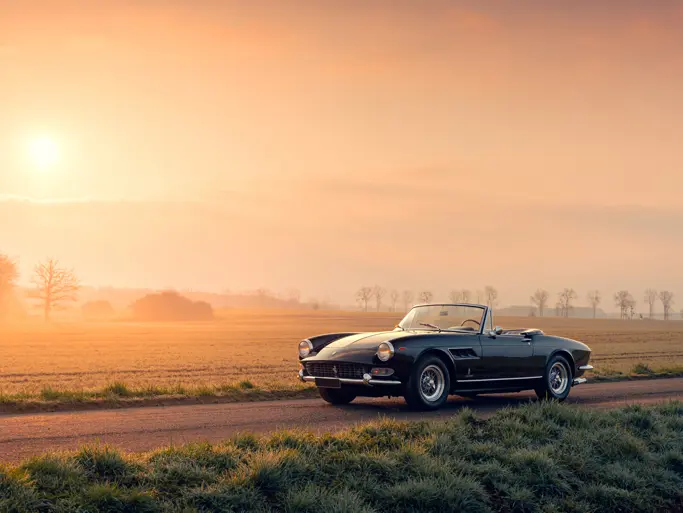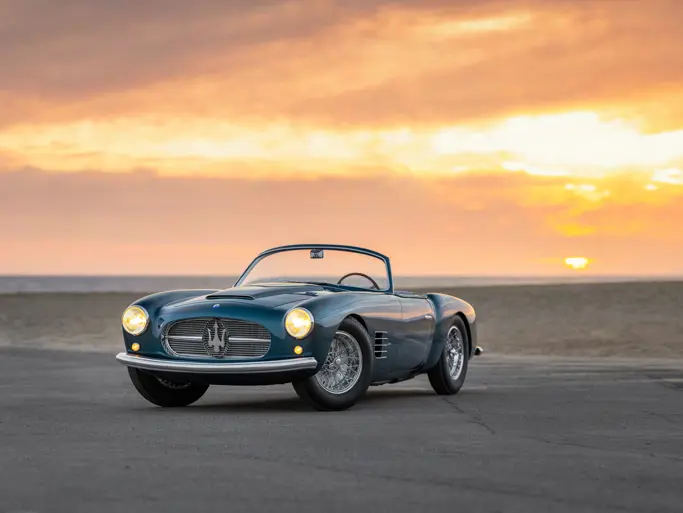116 hp, 1,290 cc dual overhead-camshaft inline four-cylinder engine with two Weber carburetors, four-speed manual transmission, independent front and rigid rear axle with coil-spring suspension, and four-wheel drum brakes. Wheelbase: 88.5 in.
With its move into a new market segment notwithstanding, Alfa’s racing activities in the late 1940s and early 1950s took up where they left off prior to the start of the war. While the factory didn’t campaign a sports car program of its own in the mid-1950s, the development of cars suitable for privateers produced a spirited and winning presence in the circuit and hill climb events of the time.
A lightweight version of the popular new Giulietta Coupe was offered on an extremely limited basis, which combined the higher power of the twin carburetor Veloce model with an extensive weight saving program, which included alloy doors, hood, decklid, and bumpers and the elimination of windup windows. The doors were hollowed out with fixed armrests across their length, for further weight savings. The oil pan and intake manifold was fashioned out of magnesium, and the rear seats and sound proofing materials were removed to gain every bit of weight reduction.
The difference in the driving experience between the lightweight and the already nimble Sprint Veloce is impressive. The Alleggerita has real character as a competition tool, compared to its standard sibling. As such, the engine and chassis deliver a more immediate response to the throttle and wheel than those of the regular production model.
This Sprint Veloce Alleggerita is reported to have been first delivered on March 23, 1957, to Mr. Ranuzio Scirilani, of Rome, Italy. Its early history is not documented, but, by 2001, it had been purchased in Germany by an American collector and was brought to California. Since then, it has been owned by experienced Alfa collectors, with maintenance carried out by Laurence Anderson and Conrad Stevenson, highly-regarded specialists in the Bay Area.
The engine, 1315 30552, is not stamped into the data plate (1315 30330), but it is a correct series number for a 1957 Sprint Veloce, as recorded in Luigi Fusi’s Alfa Romeo Tutte le vetture dal 1910. In addition, noted Italian sports car historian John de Boer has reviewed this Giulietta and declared it to be an original Sprint Veloce Lightweight. The engine compartment is very clean, revealing original spot welds and an overall consistent feel. The camcover has been painted with an attractive crackle finish, and Weber 40DCOE carburetors have been fitted in place of the original 40DCO3 units.
Cosmetically, the Alfa presents well, showing some signs of aging from its restoration, but it is very presentable for active event use, for which it is ideal. Sitting behind the attractive and rare flat-spoked period Nardi wood-rimmed steering wheel, it is easy to imagine thoroughly enjoying this very special Giulietta on events such as the Colorado Grand, California Mille, or the Mille Miglia Storica, the way it was intended to be used. Indeed, this Alfa would be welcome at any number of such events worldwide. The total number built of these very special Giuliettas is unknown, with the number ranging from 100 to 200 examples. In any event, it can certainly be declared that a mere fraction of them remain, and when one appears for sale, attention must be paid.




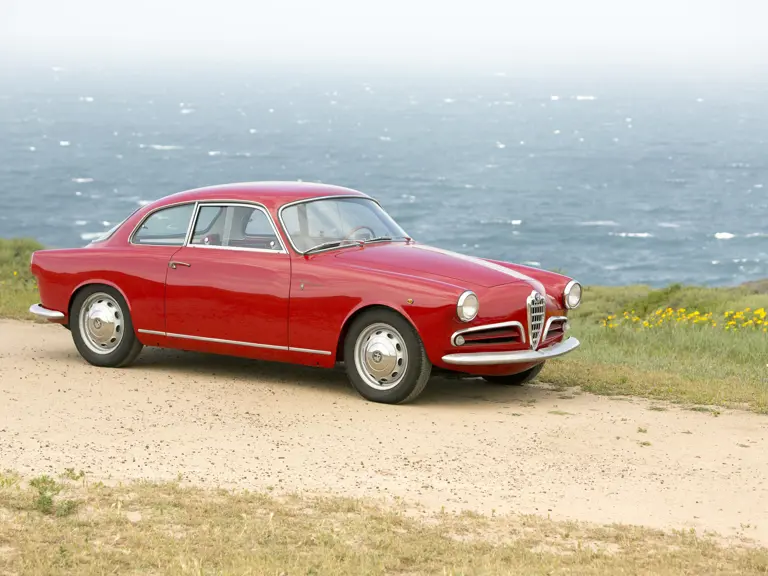
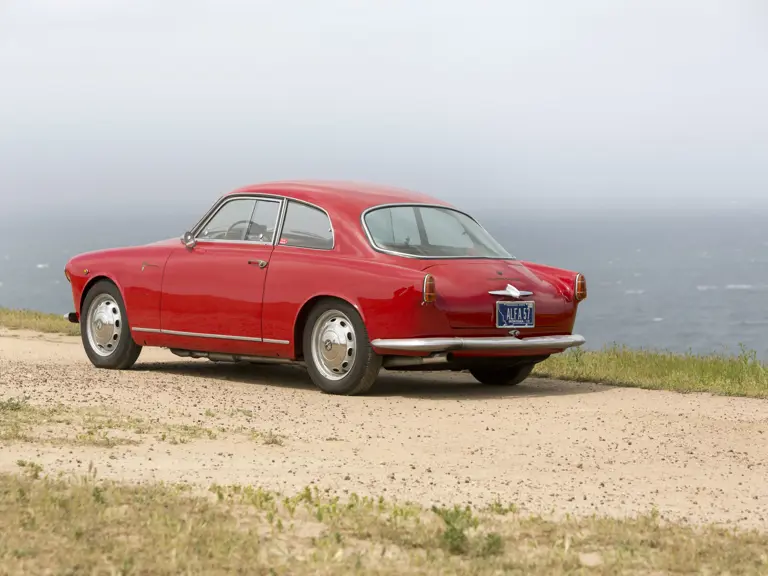
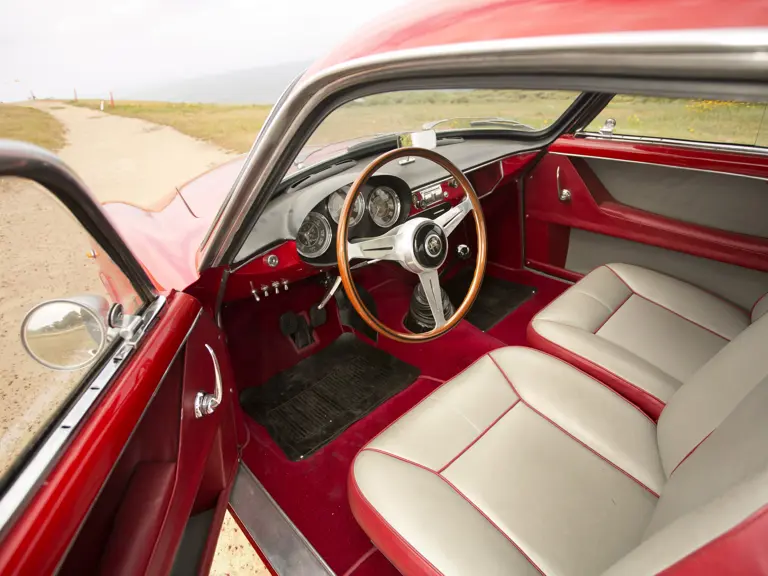
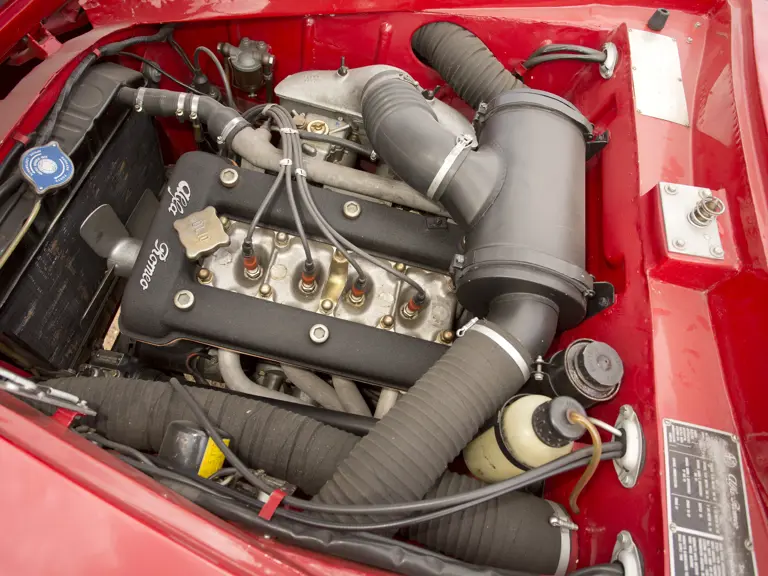
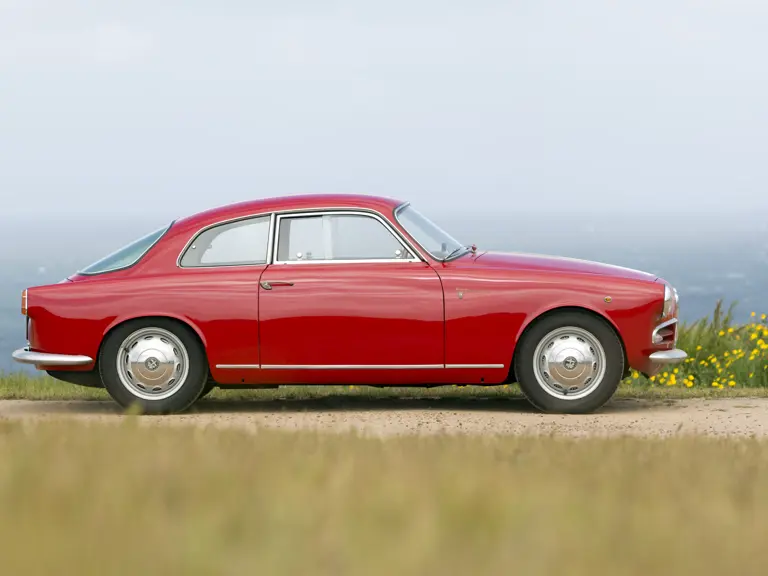
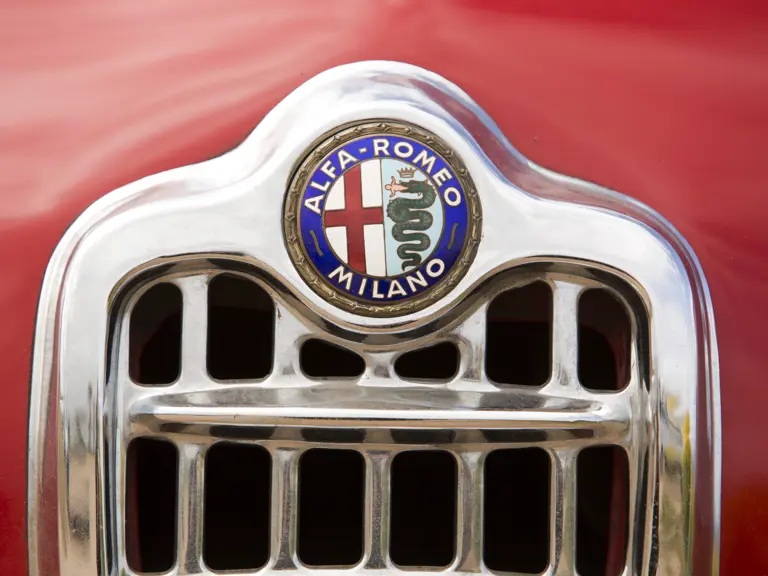
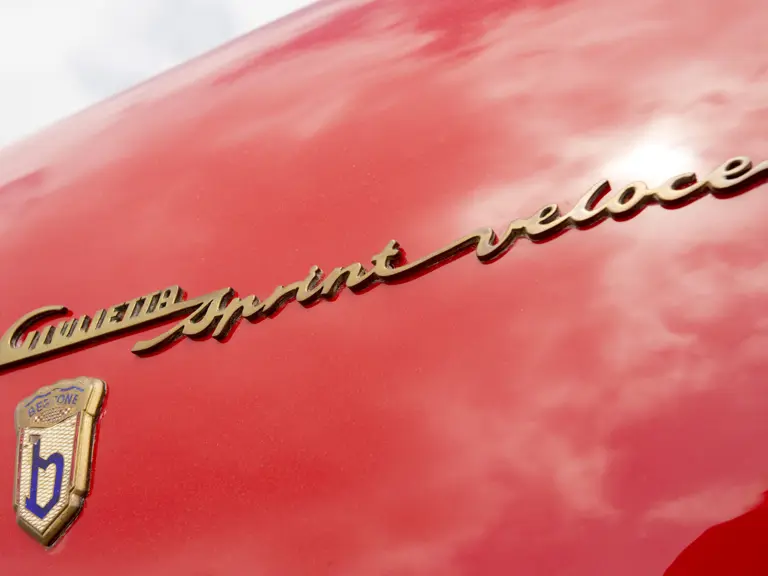
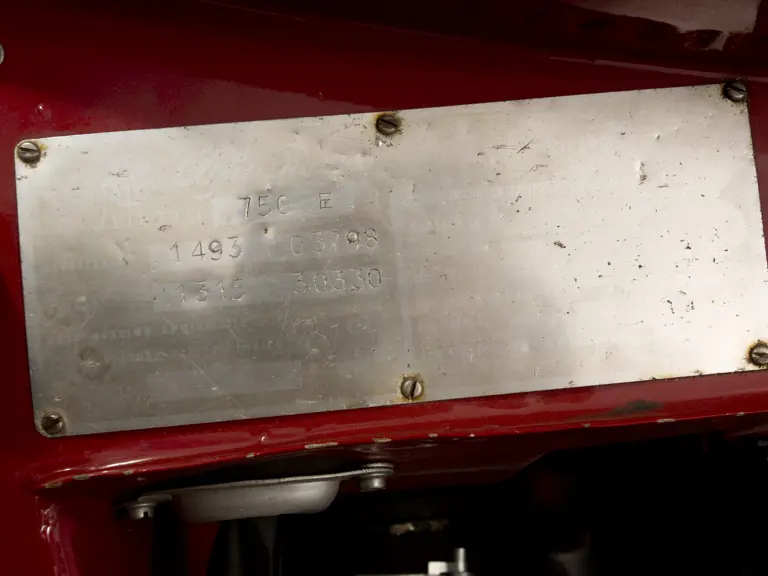
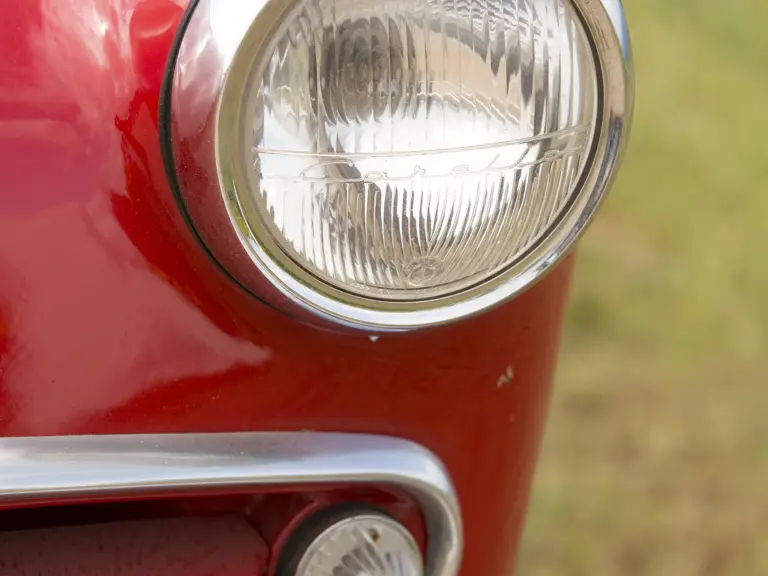
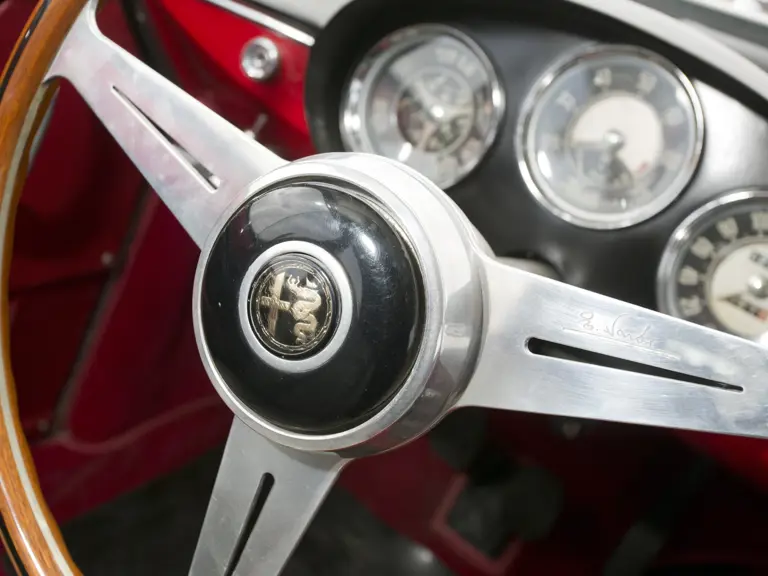
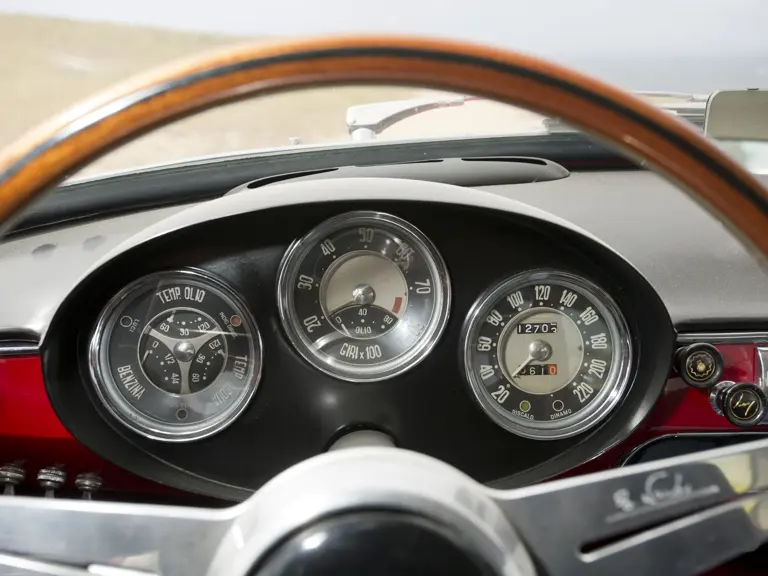
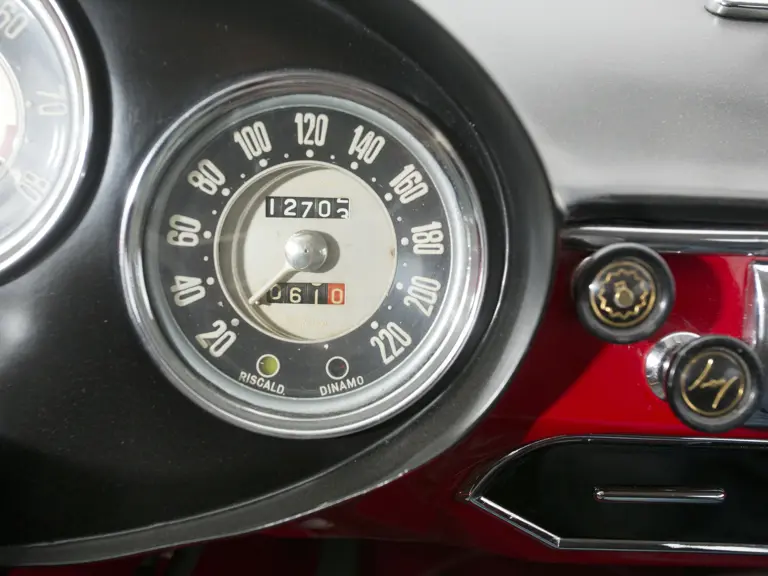
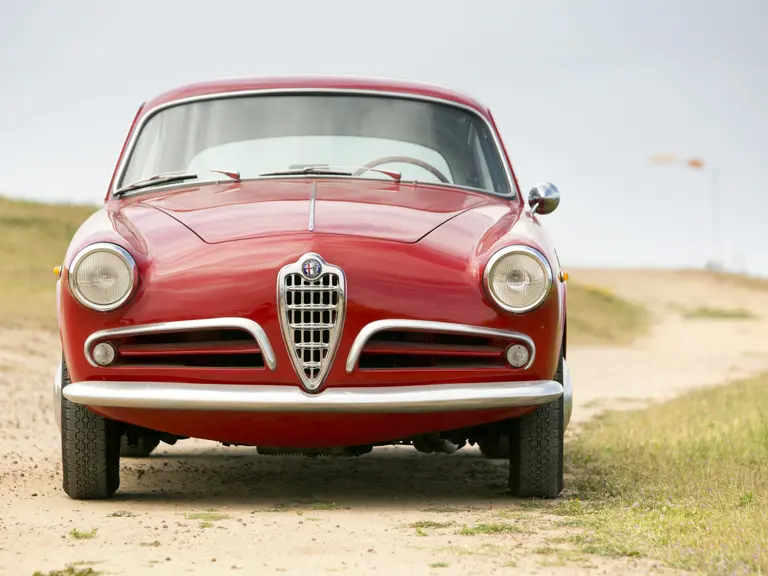
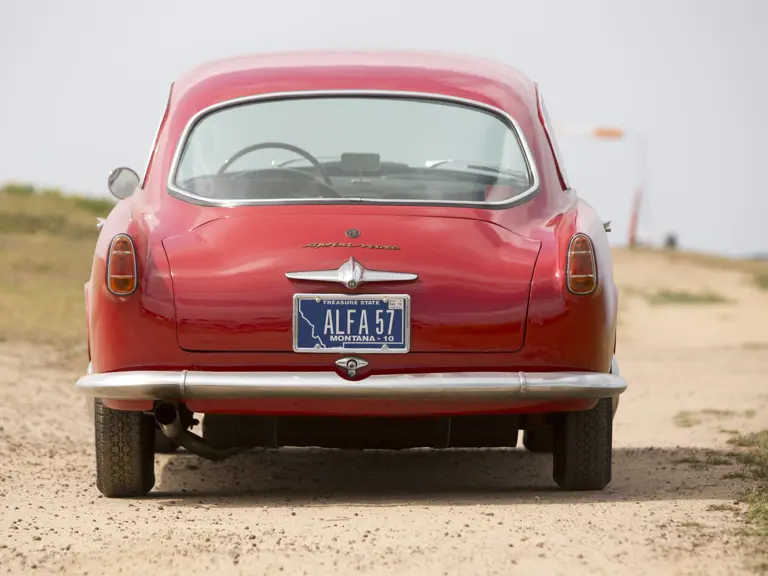
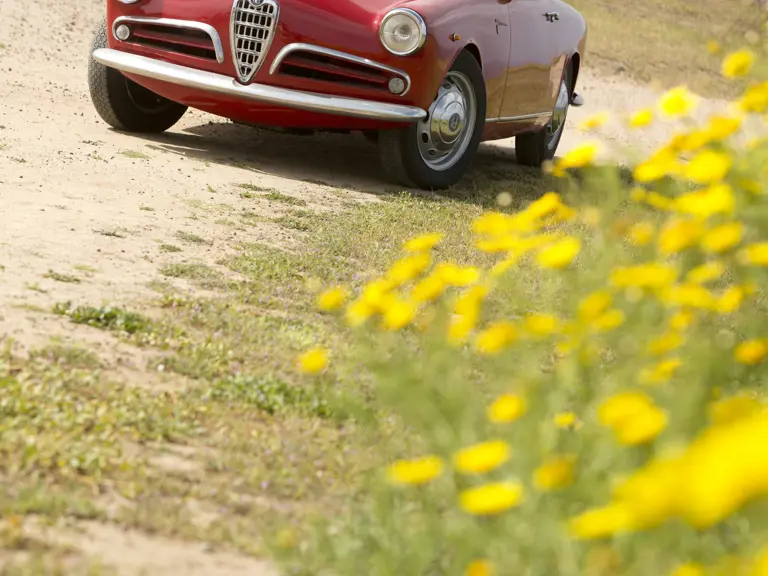

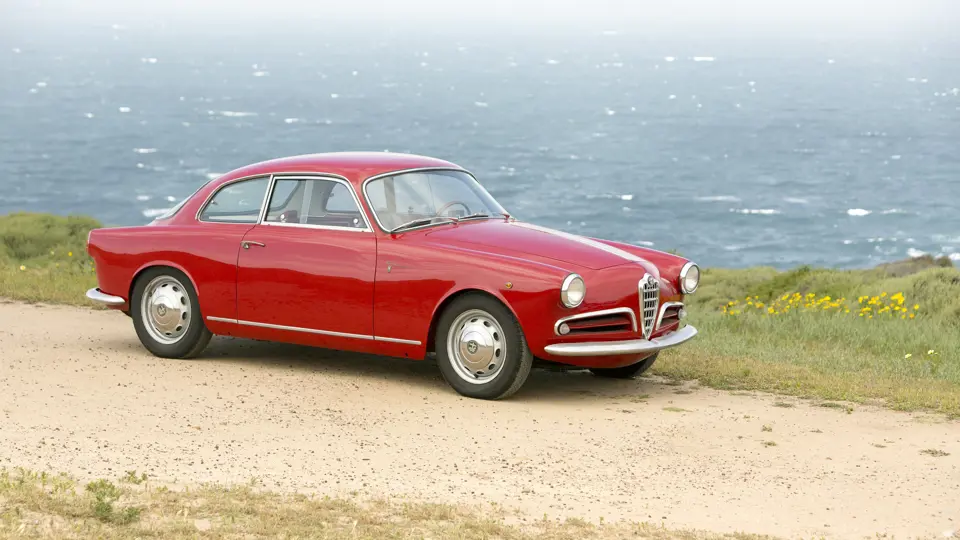
 | Monterey, California
| Monterey, California
